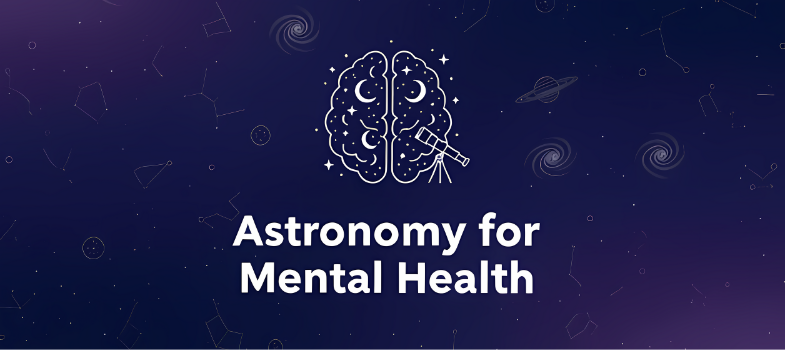Astronomy for Mental Health and Well-being (Part 1)
Welcome to the Sky
Astronomy is not only a science. It is a deeply human experience. For thousands of years, people everywhere have looked up at the night sky to trace patterns, tell stories, and find meaning in the stars.
From the Nabta Playa stone circles in the Nubian Desert, which predate Stonehenge and tracked the summer solstice, to the Songline navigation of Indigenous Australians, the sky has served as a map, a clock, and a sacred text for non-Western civilizations for millennia. The Moon’s cycle continues to shape Islamic, Hindu, and Chinese calendars, proving that our connection to the cosmos is a living and global heritage.
Imagine This Scenario
You are leading a community group in a quiet outdoor space at dusk. As the first stars emerge, the chatter of the day fades. One participant, who has been feeling overwhelmed by local economic or family stressors, looks up at a familiar constellation and realizes that these same stars were watched over by their ancestors a thousand years ago. For a moment, their personal burden feels smaller and shared with the vastness of time and space.
Reflection Prompt Think about a time when you looked up at the sky, perhaps during a power outage, on a quiet night in a village, or while traveling. What made that moment feel different from your daytime routine?
Astronomy and Astrology: Understanding the Difference
Because both reference constellations, they are often confused. However, their methodologies differ fundamentally:
-
Astronomy (Science): Uses constellations as geographic markers. Astronomers use evidence-based observation and physics to understand the origin and behavior of the universe.
-
Astrology (Belief System): Uses constellations symbolically. It suggests that the positions of celestial bodies influence human character or fate.
In short, astronomy relies on evidence and observation while astrology interprets the sky symbolically.
Why Astronomy Supports Well-being
While looking at stars is peaceful, the psychological benefits are supported by rigorous research. Here is why this practice works:
1. The Science of Awe and the Small Self
Research shows that experiencing awe, which is the feeling of being in the presence of something vast, shifts our focus away from our own ego. This "Small Self" effect reduces entitlement and increases "prosocial" behaviors like kindness and generosity (Piff et al., 2015).
Real World Example: In post-conflict settings or refugee camps, stargazing programs have been used to provide a "psychological breather," allowing participants to feel a sense of wonder that transcends their immediate and difficult environment.
2. Attention Restoration and Mental Fatigue
According to Attention Restoration Theory, natural environments, including the night sky, allow our "directed attention" to rest. This reduces mental fatigue and improves patience and problem-solving (Kaplan, 1995).
Facilitator Tip: Just 10 minutes of quiet sky observation can act as a mental reset, similar to the benefits of a short nature walk.
3. Communal Resilience and Shared Heritage
In many African and Asian cultures, well-being is not just individual; it is communal. Astronomy fosters "connectedness," which is a sense of belonging to a larger human story. By sharing indigenous star lore, facilitators can reinforce Communal Resilience and help a group feel that if their ancestors survived through the guidance of the stars, the current community can also persevere.
Pause and Consider Knowing that awe can actually make us more helpful toward others, how might you use a stargazing session to resolve a conflict or build trust in a community group?
References & Bibliography (APA 7)
-
Cho, Y., Ryu, S. H., Lee, B. R., Kim, K. H., Lee, E., & Choi, J. (2015). Effects of artificial light at night on human health: A literature review of observational and experimental studies. Chronobiology International, 32(9), 1292 to 1304. https://doi.org/10.3109/07420528.2015.1073158
-
Kaplan, S. (1995). The restorative benefits of nature: Toward an integrative framework. Journal of Environmental Psychology, 15(3), 169 to 182. https://doi.org/10.1016/0272-4944(95)90001-2
-
Piff, P. K., Dietze, P., Feinberg, M., Stancato, D. M., & Keltner, D. (2015). Awe, the small self, and prosocial behavior. Journal of Personality and Social Psychology, 108(6), 883 to 899. https://doi.org/10.1037/pspi0000018
-
Rudd, M., Vohs, K. D., & Aaker, J. (2012). Awe expands people’s perception of time, alters decision making, and enhances well-being. Psychological Science, 23(10), 1130 to 1136. https://doi.org/10.1177/0956797612438731
